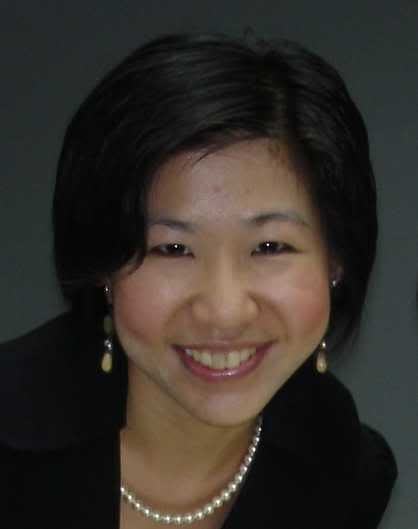Learning on the Job
Leaders can build on their skills, gain useful experience and make the most out of their jobs by taking on extra challenges.
People learn most at work when they are presented with new challenges or opportunities, and leaders are no exception to the rule.
Situations such as taking on a new division or overseeing an acquisition provide invaluable experience and are therefore guaranteed to offer a great chance for learning and personal development.
But we do not have to wait for a new job or a promotion to find opportunities to extend ourselves. That is because everyone should be able to identify many ways to acquire new skills and gain useful experience in the context of their current jobs.
The key is to look for developmental assignments. These are roles and activities which provide the chance to stretch oneself and, in doing so, to become a better leader.
They do not automatically entail a major job shift or a move to a different company.
Provided you adopt a practical strategy geared towards consistent self-improvement, you should have no trouble finding extra opportunities to learn. To get started, you can consider the following options:
Take on temporary assignments Look beyond your job description or outside the department for different projects. There may be task forces to join, one-time events to organise, or short-term activities for which you can volunteer.
Reshape what you do Explore whether you can assume new responsibilities or reshape your current job on a permanent or temporary basis. This demonstrates commitment, interest and willingness to take on more - all traits that are generally appreciated. See if it is possible to exchange certain responsibilities with a colleague or take charge of a project that is not being run by anyone. At the same time, re-examine your responsibilities and make sure that each of them is receiving sufficient attention.
Seek challenges outside the workplace There are many lessons to learn about leadership from personal experiences and challenges encountered outside the formal scope of your job. They can come through contacts with non-profit, religious, social or professional organisations, as well as from getting involved in school events, sports teams or even arranging family get-togethers.
Whatever you choose, it is important to have a plan in mind and to be clear about what you hope to learn. Otherwise any efforts towards self-development will lack direction and risk becoming haphazard and less than effective.
To have a personal development plan that works, start by addressing your own strengths and weaknesses. Take the initiative and prepare well by following these steps:
1) Think it through and write it down.
At the outset, it is important to define what you need to learn to build on strengths and eliminate or compensate for certain weaknesses. Take about 30 minutes to think things through. The aim is to recognise what you need to do better in your job and what is needed to cope with future assignments and bigger opportunities. Write these initial thoughts down, and refer back to them periodically.
2) Consider the opportunities.
Once it is clearer what you need to improve and learn, consider which route to take. There are likely to be several options, and each of them should be weighed up carefully. List all the possibilities which may be temporary or longer term, in the workplace or outside, in order to have a structured approach.
3) Set priorities.
Armed with the relevant information, review the options and decide on your priorities. In the short term, there might be an opportunity to attend an international sales conference in Singapore, for example, or to edit the company newsletter while a co-worker is on maternity leave. Take advantage of such openings, while remembering to have other goals that require longer-term application.
The priority will be to choose the assignment which has the most value. For example, if you know it is crucial to learn about managing change, choose an assignment that requires solving a specific problem or establishing a new policy.
4) Check again and get going.
After deciding which project to take on, ask yourself a few final questions. These are to clarify how you will measure progress, where you can find assistance if necessary, and what problems you should realistically anticipate. Then you just have to take the first step.
Planning is important but, ultimately, learning how to become a better leader depends on taking action.
To get the most out of a personal development plan, it is essential to look beyond the obvious. Never limit yourself to the easy options of the first ideas that come to mind. Instead, delve deeper and make use of the following guidelines:
Ask around.
Do not simply consider your own ideas. Talk to co-workers, employees and friends. Discuss your plan with them to get suggestions and different perspectives. Even if you do not agree with all the comments, take note of them. Some may not fit your short-term needs, but could be worth revisiting in the months or years ahead.
Get the boss involved.
Narrow down the list of potential assignments and discuss them with your boss. This is a good way of assessing which are the most practical and offer the best potential for learning. Some may have the additional benefit of helping the team or organisation in ways you had not foreseen. The boss may expect to know what is going on anyway, and could be instrumental in getting the assignment set up.
Plan thoroughly.
Some parts of your plan may fall into place quickly, while others will take more time and may require waiting for the right moment. Lay the groundwork so that you can take each opportunity as it arises.
To keep growing personally and professionally in a career, we need to keep seeking out new experiences which foster learning.
A new job usually forces us to develop new skills, but with a proactive approach to development, it is also possible to learn continuously in our current job.
It is largely a matter of taking the initiative, looking out for opportunities, and being prepared to accept the assignments which come along.












0 Comments:
Post a Comment
<< Home